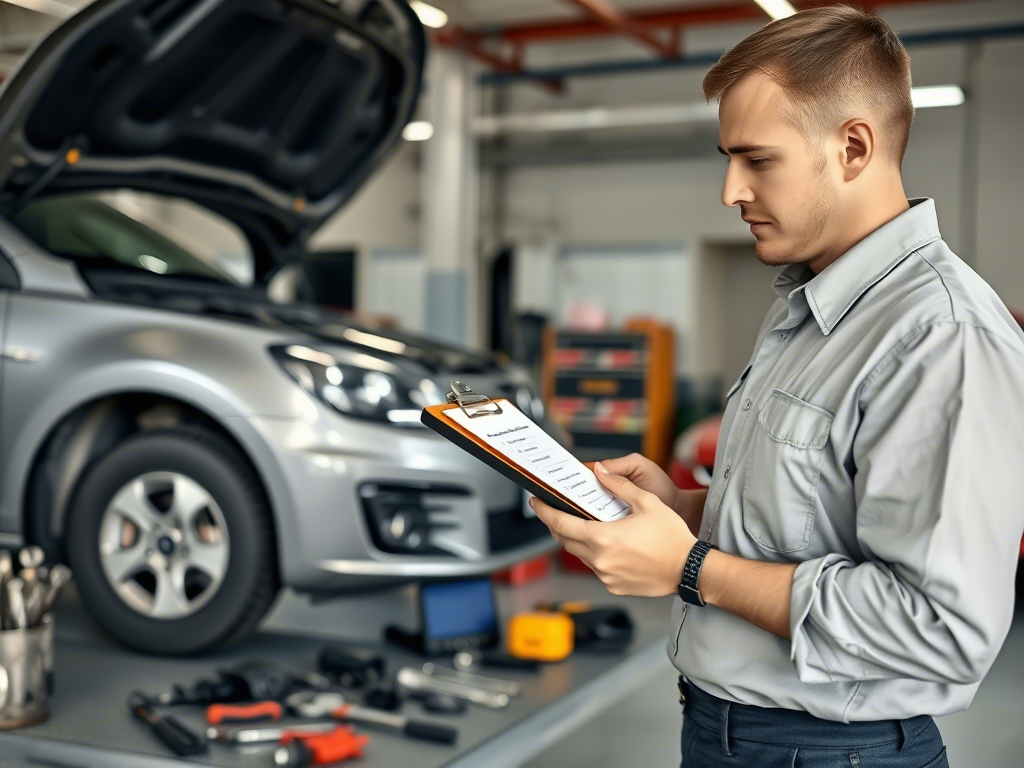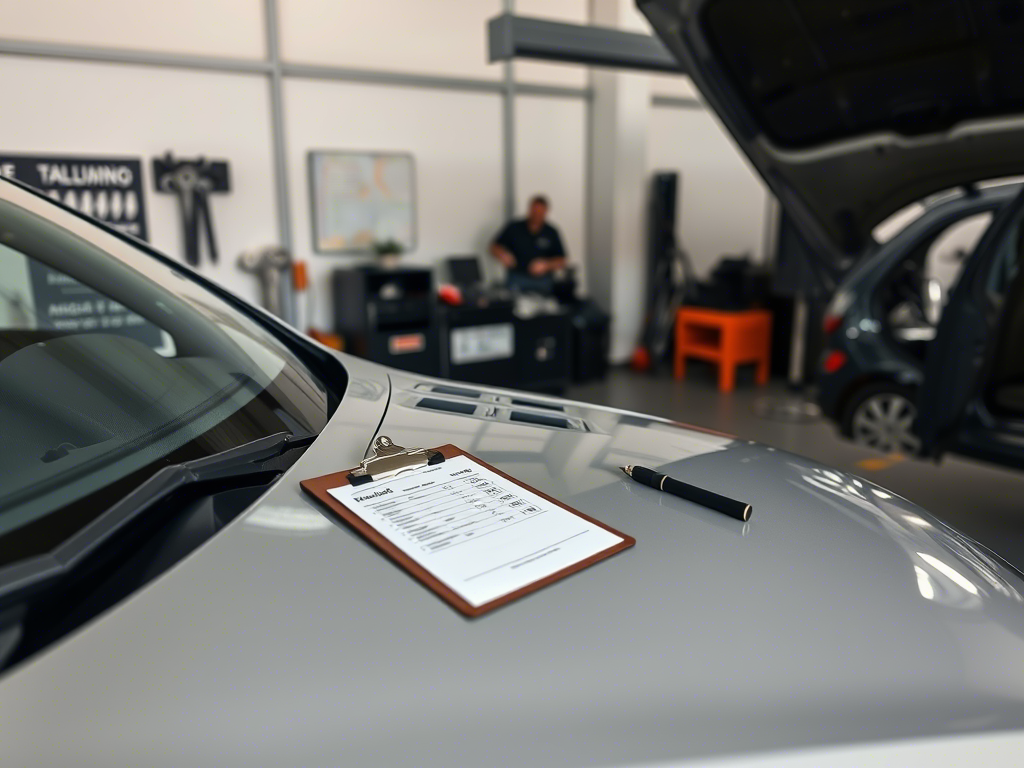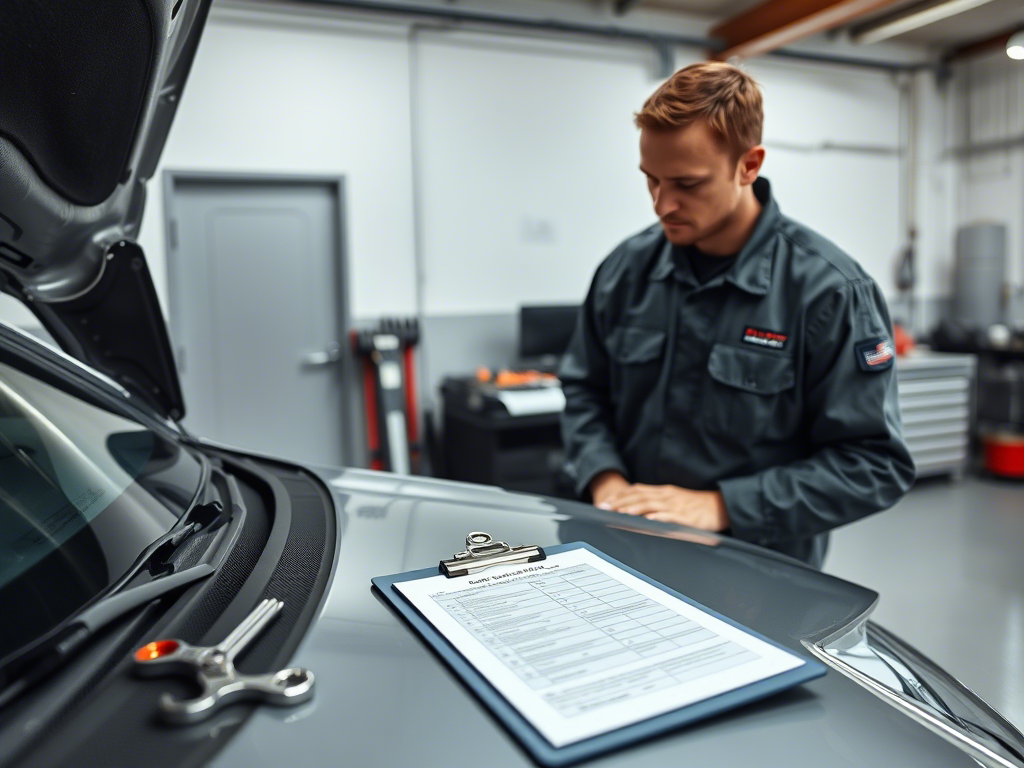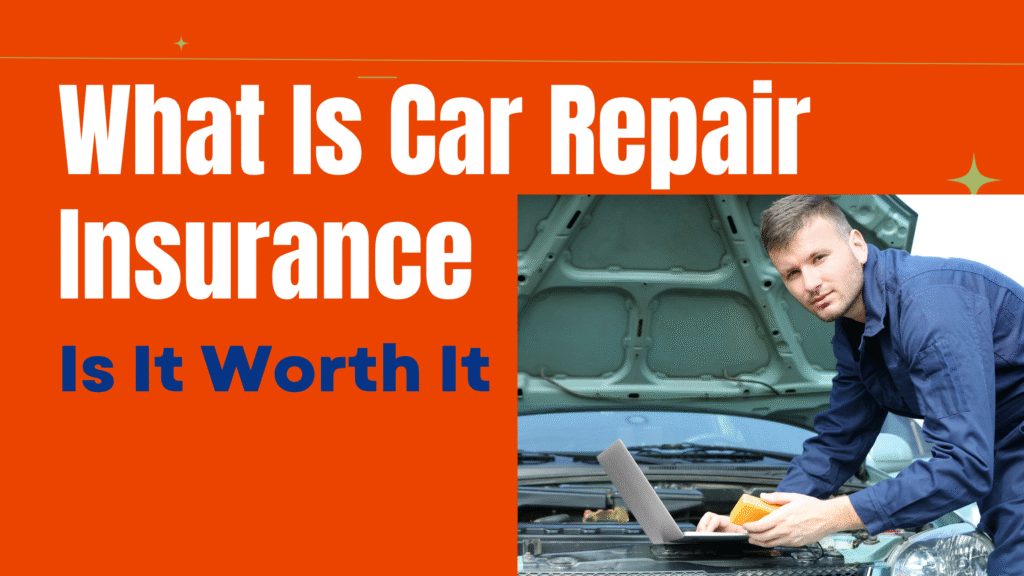Let’s face it we all know how much of a hassle it can be when our cars unexpectedly break down. One minute you’re cruising smoothly, and the next, you’re staring at a blinking “check engine” light with a sinking feeling in your stomach. Cue the unplanned mechanic visits, expensive parts, and repairs that come out of nowhere. That’s where something called car repair insurance comes into play. But what is it exactly? And more importantly, is it something you need?
Whether you’re driving a brand-new car or holding onto your trusty ride for the long haul, understanding what car repair insurance is and whether it’s worth the investment can save you time, money, and a whole lot of stress.
FAQs About Car Repair Insurance
Here are some questions and their short answers that we found are frequently asked by our readers.
Disclaimer: We are not a financial adviser; please consult one.
What Exactly Is Car Repair Insurance?

First, let’s break it down. Car repair insurance is often confused with other types of auto-related coverage, so getting clear on what it covers (and doesn’t cover) is important. It’s also known as mechanical breakdown insurance, which gives a clue to its primary purpose.
Unlike regular auto insurance that covers accidents, theft, or weather-related damage, car repair insurance is designed to cover mechanical failures that happen after your car’s warranty expires. Think of things like:
- Transmission problems
- Engine issues
- Steering system repairs
- Electrical system malfunctions
These repairs can cost a fortune if you’re paying out of pocket. Car repair insurance steps in to help manage these pesky and pricey repairs, especially for unexpected mechanical failures.
How Is It Different from an Extended Warranty?

This is where a lot of folks get confused. You might’ve heard of extended warranties or even purchased one when buying a car. While they seem similar to car repair insurance, they’re not quite the same thing.
An extended warranty is usually offered by the car manufacturer or dealership and provides coverage when the original factory warranty ends. It often has strict terms and requires you to have repairs done at certain facilities.
On the other hand, car repair insurance is typically purchased through an insurance company, like Lemonade, and may give you more flexibility on where you can get repairs done and what’s covered, depending on your policy.
What Does Car Repair Insurance Cover?
Coverage varies depending on the insurer, but here’s the general idea:
- Major systems failures (engine, transmission, drivetrain)
- Electrical components (starter motor, power window motors, alternator)
- Condition-based parts that aren’t normally covered under standard auto insurance
It’s worth noting that routine maintenance isn’t typically covered. So don’t expect help paying for oil changes, tire rotations, brake pad replacements, or windshield wiper blades. Car repair insurance is for unexpected mechanical issues, not wear-and-tear items or general upkeep.
What’s Not Covered?

Here’s where reading the fine print becomes crucial. While car repair insurance can be a lifesaver when something goes wrong, it doesn’t cover everything. Most policies won’t cover:
- Pre-existing issues (anything wrong before you bought the policy)
- Accident damage or collision repairs
- Cosmetic repairs (dents, scratches, rust)
- Damage caused by neglect or lack of maintenance
- Parts that wear out naturally, like brake pads and tires
Simply put, car repair insurance won’t bail you out if you haven’t been taking care of your vehicle. It also won’t replace your auto insurance or extended warranty, it’s meant to fill the gap and give you peace of mind once your warranty runs out.
Who Should Consider Getting Car Repair Insurance?
Not everyone needs this type of coverage. If you’ve got a brand-new car under warranty, you’re probably already protected. But for those driving older cars that no longer have factory coverage, car repair insurance can be a great safety net. You might be a good candidate if:
- Your car is between 3–10 years old.
- You plan to keep driving your car for several more years.
- You don’t have an emergency fund set aside for surprise repair bills.
- You want to avoid big, one-time service expenses.
Think about it do you have the spare cash lying around to cover a $3,000 transmission replacement tomorrow? If the answer is no (and for most people, it is), then car repair insurance might be worth a second look.
When Might It Not Be Worth It?
On the flip side, there are times when this type of policy might not make financial sense. If your vehicle is relatively new and under warranty, you’re better off sticking with that coverage. In fact, some car repair insurance policies won’t cover vehicles still within factory warranty periods.
Also, if you’re driving an older car that has seen better days or is prone to frequent breakdowns, the cost of monthly premiums might outweigh the benefit, especially if repairs are no longer cost-effective. Once cars reach a certain age or mileage, they might not even qualify for car repair insurance due to higher risk factors.
How Much Does Car Repair Insurance Typically Cost?
Prices vary depending on the insurer and your vehicle’s age, model, mileage, and condition. But generally, you can expect to pay anywhere from $30 to $100 per month.
Yes, that’s an extra monthly expense, but when you consider the potential cost of a single major repair, it can quickly pay for itself. For example, a busted transmission alone could set you back several thousand dollars. With the right car repair insurance, you might only be responsible for a deductible (usually between $100–$500), saving you a hefty chunk of change.
What Are the Pros and Cons?
Let’s quickly weigh the good and the not-so-good:
Pros:
- Peace of mind – You’re covered for major surprise repairs.
- Less financial risk – Reduces your repair bills significantly.
- Potential to save money – One big repair might pay for the policy.
Cons:
- Monthly premiums – An added cost, even when you don’t use it.
- Limited coverage – Not everything is included.
- Eligibility restrictions – Older or high-mileage cars may not qualify.
Tips for Choosing the Right Car Repair Insurance
If you’re seriously considering getting coverage, here are a few smart steps to take:
- Read the fine print – Know exactly what’s covered and what’s not.
- Compare providers – Look at customer reviews, ratings, and pricing.
- Check requirements – Make sure your car qualifies.
- Choose a reputable insurer, Like Lemonade, known for transparency and easy claims.
So, Is Car Repair Insurance Worth It?
The answer really depends on your personal situation. If the idea of a surprise $2,000 repair bill makes your stomach turn and you’re driving a car that’s no longer under warranty, then car repair insurance can be a smart way to protect your wallet.
On the other hand, if you keep your car well-maintained, have a newer model, or have a rainy-day fund ready to cover unexpected expenses, you might decide it’s not worth the added monthly cost.
At the end of the day, the goal is peace of mind. Whether you choose to buy car repair insurance or not, just knowing your options and making an informed choice can help you avoid expensive surprises down the road.
Have you ever had an unexpected repair hit your budget hard? Would you feel better having a safety net in place? Let us know in the comments below!
Final Thoughts
Car repair insurance isn’t for everyone, but it can be a real game-changer for people who rely on their cars every day and don’t want to risk a financial hit from sudden mechanical breakdowns. Take a good look at your car’s age, warranty status, reliability, and your financial cushion before deciding. And remember, being proactive about coverage is always better than being reactive when you’re stranded on the side of the road!
Looking for More Insurance Insights?
Want to learn more about car insurance basics? Check out our other helpful guides on:
- Save Big with Costco Auto and Home Insurance Services
- Exclusive GEICO Discounts: Organization Membership Savings
- Save on Auto Insurance with GEICO’s Affordable Coverage Options
- Is Mechanical Breakdown Insurance Worth It for Your Vehicle?
- United Auto Insurance Review: Affordable Coverage, Mixed Ratings
- Rhode Island Auto Insurance Guide: Savings Tips
- Best Auto Insurance Options for Drivers in Iowa
- Kentucky Car Insurance: Rates, Laws, and Coverage Options
- Missouri Auto Insurance: Requirements & Coverage Options
- Connecticut Auto Insurance Guide for Drivers: Coverage and Requirements
Looking for more tips on protecting your car and your wallet? Stay tuned for our latest guides and real-world advice to keep you rolling with confidence.

